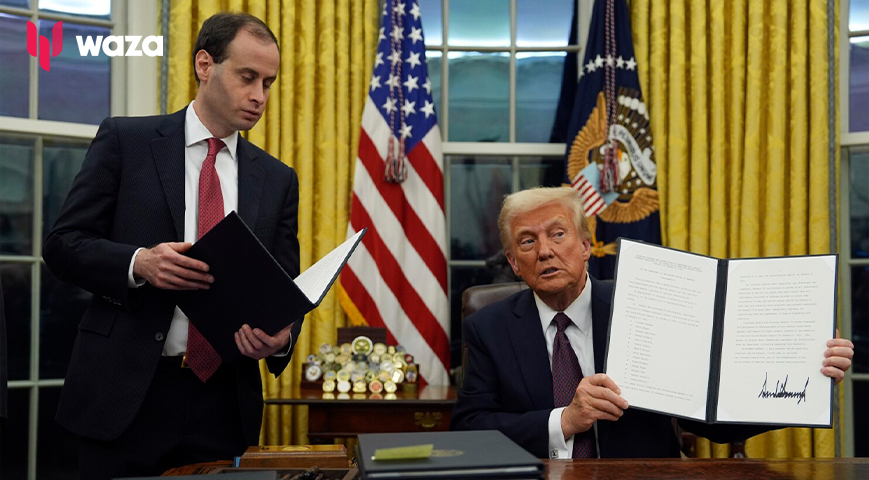Donald Trump, hours after being sworn in as U.S. president on Monday, pardoned approximately 1,500 supporters involved in the January 6, 2021, attack on the U.S. Capitol. The move sparked outrage among lawmakers, law enforcement, and others impacted by the violent events that left four people dead and injured roughly 140 police officers.
Trump also ordered the release of 14 leaders from far-right groups like the Oath Keepers and Proud Boys, who were serving lengthy prison terms for their roles in the attack. Although their convictions remain, the pardons are seen as a highly divisive act.
Aggressive Policy Shifts Begin
Trump signed a flurry of executive orders to implement his agenda. These included restricting immigration, rolling back environmental protections, and dismantling diversity initiatives. Notably, Trump withdrew the U.S. from the Paris climate agreement, froze federal hiring, and halted a refugee program affecting over 1,600 Afghans, including families of active-duty U.S. soldiers.

Did you read this?
A declared national emergency at the U.S.-Mexico border allowed him to redirect funds and deploy troops, while another order sought to end birthright citizenship, setting the stage for a legal battle.
Trump also created a "Department of Government Efficiency," headed by Elon Musk, to cut federal spending. In addition, he began replacing nonpartisan diplomats with loyalists and repealed policies on artificial intelligence and electric vehicles.
A Controversial Inauguration
Trump, 78, took the oath of office in the Capitol Rotunda, where the January 6 attack occurred. Portraying himself as a divine savior for the nation, he vowed to "make America great again" while criticizing predecessor Joe Biden's policies on immigration and foreign affairs.
His return marks the first time in over a century that a U.S. president has secured a second term after losing reelection. Trump also became the first convicted felon to occupy the White House, supported by Republican majorities in Congress.
)
Prominent figures, including Elon Musk, Jeff Bezos, and Mark Zuckerberg, attended the ceremony, alongside former Presidents Barack Obama, George W. Bush, and Bill Clinton. Trump used the occasion to announce his intention to rename the Gulf of Mexico as the "Gulf of America" and regain control of the Panama Canal, alarming U.S. allies.
Polarizing Leadership Style
While Trump called for unity in his inaugural speech, his actions and rhetoric remained sharply partisan. He criticized Biden’s policies and reiterated unfounded claims of a rigged 2020 election.
In one of his final acts, Biden pardoned individuals Trump had targeted, including General Mark Milley, whom Trump had accused of treason. Milley's portrait was promptly removed from the Pentagon following Trump’s inauguration.
Trump’s swift and sweeping actions signal a highly charged new chapter in U.S. politics, as his policies and leadership style continue to provoke intense debate.









